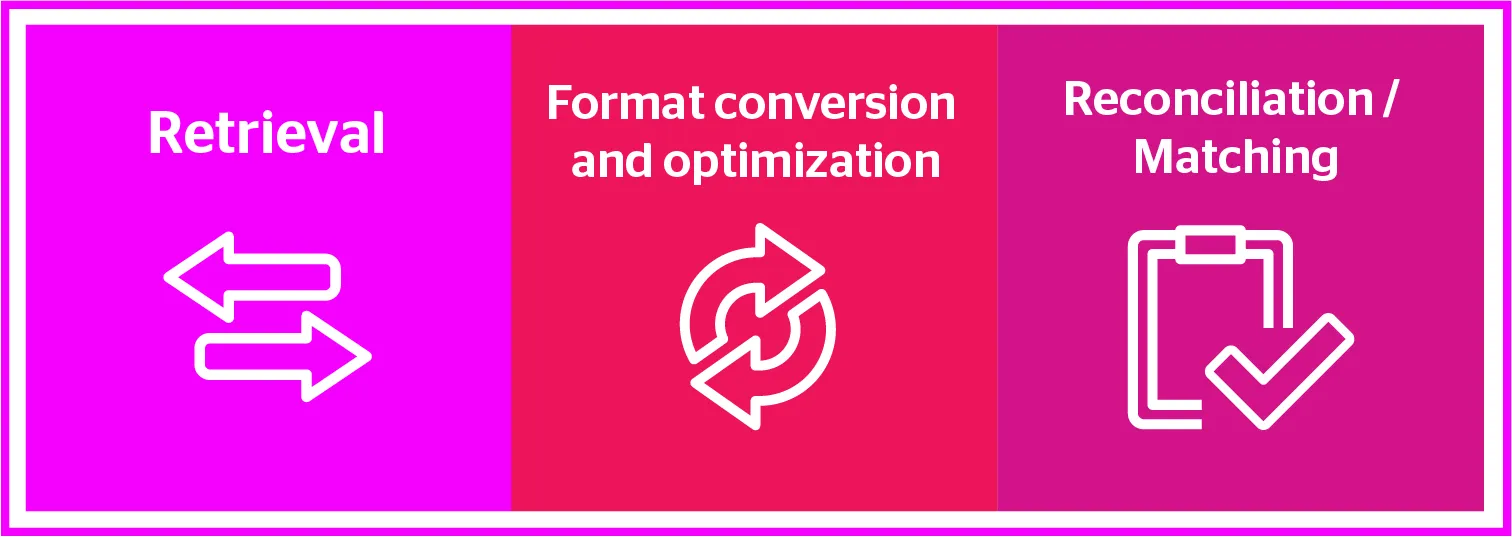Payments Unlimited
23-04-2021 7 min read
Expand digitized payment methods and add new payment service providers for innovative customer payment options
Payments is increasingly becoming an open and flexible ecosystem with more services and solutions than ever before. Companies that integrate payment service providers and modern payment methods into their accounts receivable processing stand to benefit from the enormous opportunities available.
The payments landscape has never been as dynamic as it is today. New players are entering the market and offering completely new business models. Payment service providers (PSP), fintechs, payment and card companies have rapidly expanded the options available to companies and consumers and platform companies such as Google, Facebook and Amazon are also joining the fray. The options are almost unlimited.
This abundance of payment options, however, can pose a challenge for organizations that want to take advantage of these new possibilities. Integrating inbound payment systems and real-time payments with accounts receivables can be difficult and the effort to make this work should not be underestimated.
The future of payments is digital and intuitive
The future of payments includes countless and sometimes confusing possibilities. Depending on your experience managing various payment options, it also can be a potentially cost-intensive transformation process. Yet, there is simply no viable alternative to digitalization in payments. Innovative and cross-device payment channels are already gaining ground. Real-time, mobile and in-app or IoT-enabled payments are being embraced by consumers and customers, who find them to be intuitive, agile and fast.
Companies have to keep pace with increasing user expectations regarding the payment experience – or risk losing their competitive edge. A company that cannot offer and process digital payments will not survive in today's world, let alone in the world of tomorrow. A long or complicated payment process makes it likely that customers will end their buyer journey prematurely. Conversely, a simple payment process makes easier for a potential buyer to complete their purchase. This is particularly important for eCommerce, where customers cancel a purchase more quickly than in real-life stores. Ideally, a single click should be all that is needed to complete a transaction.PSP integration presents new challenges for finance departments
Regardless of possible concerns, companies are increasingly turning to payment service providers to enable simple online payments for their customers. Incoming PSP payments, therefore, must be reconciled with open items by the accounts receivable department to provide an up-to-date overview of finances. However, due to the number and variety of PSPs, this process can be very complex and labor-intense.
A PSP usually sends a settlement file on a daily basis in a file format of its choice. This file contains details of every payment made through the PSP's system on that day. It can be difficult for the AR department to synchronize and automate the downstream processes for many reasons. Firstly, the PSP-specific format complicates the process of automating tasks such as assigning different fee types or assigning individual payments to the transactions for which they were intended. Secondly, each PSP can also have its own reconciliation rules, which means that transactions may be subject to chargebacks and cancellations at any time. Thirdly, the AR department may have to manually retrieve the PSP information using the PSP’s specific payment portal. The retrieval process is usually manual and highly inefficient. All of these factors can delay the processing of payments and managing exceptions, which results in insufficient transparency into liquidity.

PSP Reconciliation as a Service – easy for customers and the AR department
The good news is that the highly manual PSP synchronization process can be easily automated with intelligent integration. Using the right technology, such as the PSP Reconciliation as a Service solution from the global B2B fintech Serrala, PSP transactions can be tracked and booked correctly throughout the entire process.
The cloud-based solution allows PSPs, online portals, processors and payment gateways to be integrated into the accounts receivable processes. Whether your customers make payments through one channel or hundreds of channels, cloud services make it easy to automate AR processing. Electronic data is accepted via any transfer protocol (sFTP, APIs, direct DB connection). The PSP accounting files are then converted into standard formats that can be read by ERP, accounts receivable, business intelligence or reconciliation systems (for example CAMT.053, CAMT.054 or MT940 files). The system displays exceptions so users can quickly resolve problems with transactions and flexible Robotic Process Automation (RPA) technology ensures the data is received, converted and available for subsequent processes such as incoming payment processing.
Using the PSP Reconciliation as a Service solution, companies can make direct online payments available through many different channels outside of e-commerce web stores. The service can actively intervene when PSPs (or payment gateways, processors, vendors) do not provide consistently usable billing files or when real-time visibility of individual payments is required for fulfillment. It can also be implemented quickly and remotely worldwide. With PSP Reconciliation as a Service even complex challenges in modern payment transactions can be easily solved, opening up a world of unlimited payments to your organization and your customers.
Don’t miss out!
Serrala optimizes the Universe of Payments
for organizations that seek efficient cash visibility and secure financial processes.